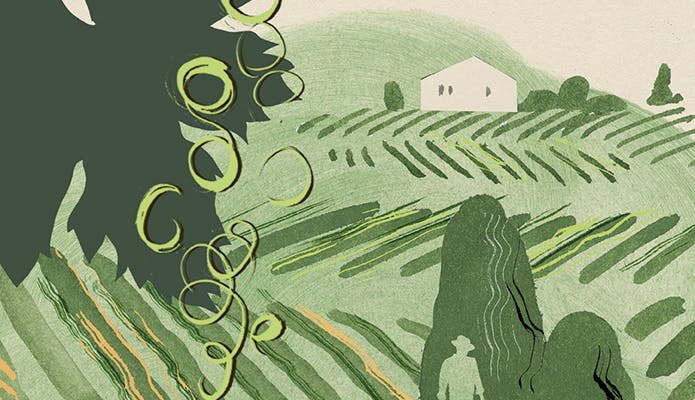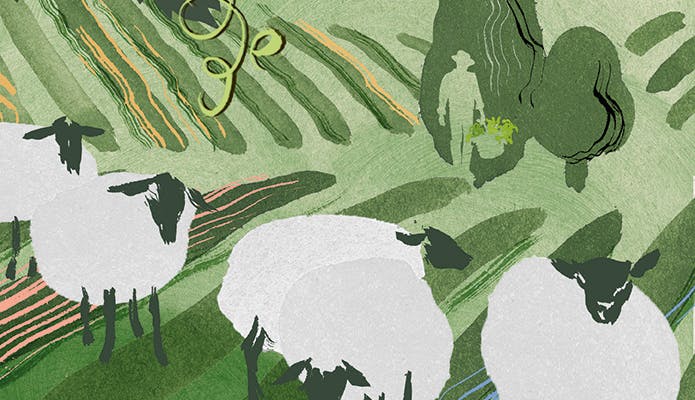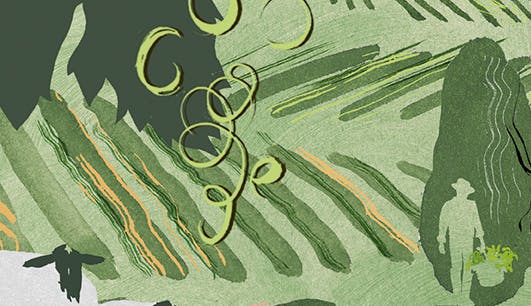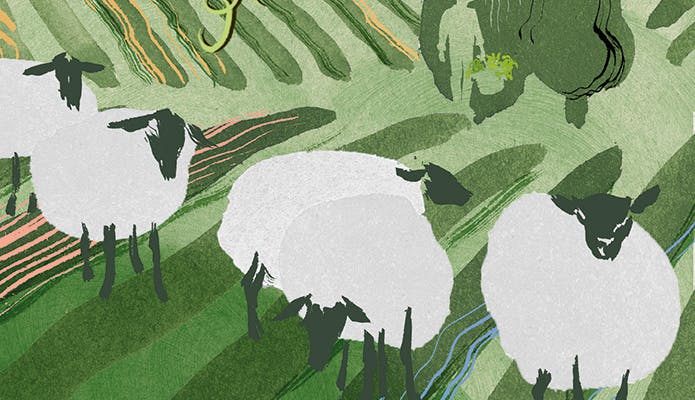
PROTECTING BIODIVERSITY
The products from the Group and its Maisons derive their exceptional character from the rich bounties of nature. Yet the protection and regeneration of ecosystems are objectives that require long-term commitments. To fulfill this aim, the Group improves the way it measures and reduces its impact on the value chain and puts in place regenerative farming practices for its raw materials. Beyond these efforts, the Group supports initiatives to regenerate and preserve the world's major ecosystems and shares its knowledge with other companies and institutions, contributing to and harnessing collective intelligence.
REDUCING OUR IMPACT ON NATURE
To assess its impact on nature, the Group makes use of tools approved by the scientific community and has set specific objectives. As such, it aims to use 100% certified raw materials by 2026 and regenerate 5 million hectares of natural habitats by 2030. In 2024, 76% of cotton used came from certified sources, 98% of leather came from LWG-certified tanneries, and 96% of grapes came from LVMH vineyards certified as sustainable winegrowers. Moreover, LVMH has also devised a policy of zero deforestation that seeks to guarantee that raw materials sourced do not contribute to the degradation of natural forests. This policy requires greater traceability within sourcing channels, certification of raw materials and initiatives to actively conserve forest ecosystems. In 2024, the deforestation intensity of the Group's supply chain was estimated at 200 hectares. LVMH also launched a plan to reduce water withdrawal by 30% by 2030 (Scope 1), integrating technology to recycle wastewater and recover rainwater, achieving a 10% reduction already at end-2024 (2019 base).
REGENERATING ECOSYSTEMS
The Group is boosting the take-up of regenerative agricultural practices across its supply chain and accelerating its program to protect ecosystems at risk. Overall, it plans to regenerate the equivalent of 5 million hectares of wildlife habitat by 2030. In 2024, 3.8 million hectares had already been regenerated, preserved or restored, including 38,000 hectares through regenerative agriculture. This focus covers strategic agricultural raw materials such as grapes, cotton, wool and leather. Beyond its direct sphere of influence, LVMH and its Maisons finance numerous projects that seek to regenerate and preserve endangered animal and plant species, in concertation with local communities and in partnership with renowned institutions such as UNESCO and the Foundation for Amazon Sustainability (FAS).
PLAYING OUR PART IN THE COLLECTIVE MOBILIZATION
LVMH promotes collective action by collaborating with various businesses and institutions, training its employees and raising awareness among the wider public. As an active member of the TNFD (Taskforce on Nature-related Financial Disclosures) forum, the Group helps draw up frameworks and standards to assess the risks and opportunities relating to biodiversity and has pledged to apply these standards in 2025. In June 2023, at the Future Fabrics Expo in London, LVMH set out its initiatives to support biodiversity and presented the coalition "Biodiversity Corridors in Africa", essential for genetic diversity and the migration of species.
PROTECTING BIODIVERSITY




